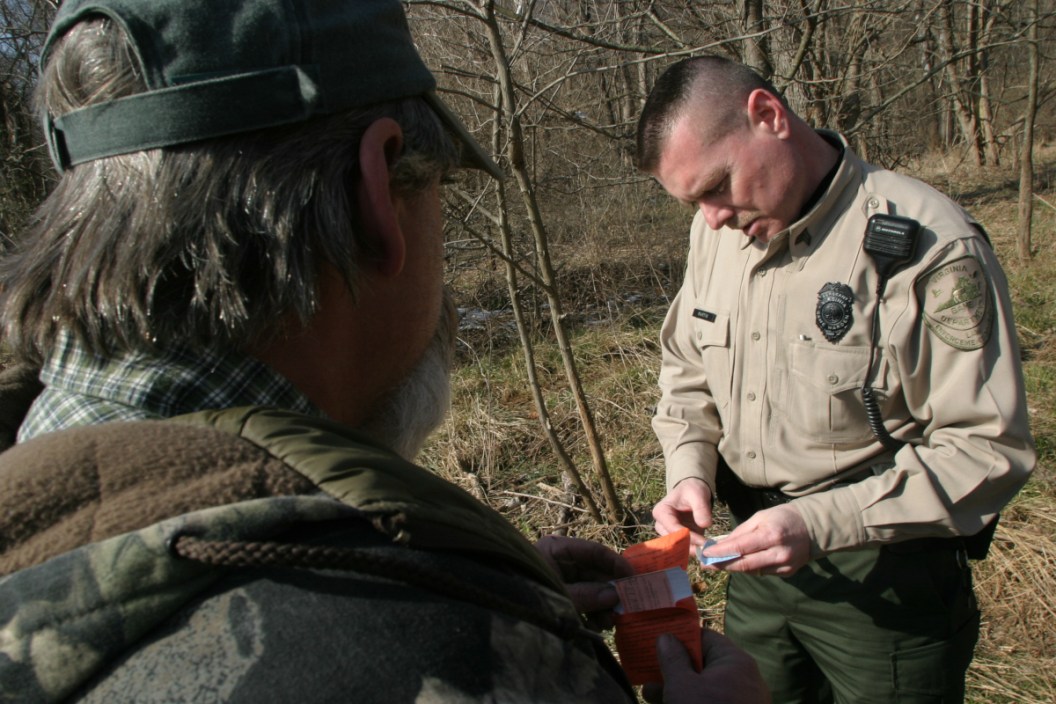Do you know when it's appropriate to call law enforcement while being harassed in the woods?
Sportsmen and women must endure all sorts of annoyances these days. Trespassers, poaching activities, competition on public lands, and annoying restrictions implemented due to dropping game numbers or disease are just a few of the issues.
As if that wasn't enough, we must also deal with hunter harassment from time to time. It's garnered up a ton of headlines in recent years, and YouTube is filled with videos alleging to show these activities.
While some hunters attribute these types of activities exclusively to anti-hunters, the sad news is that we've also noticed a plethora of these cases involving conflicts between hunters. The good news is that in most states, harassment of hunters engaging in lawful activity is highly illegal.
It's important to take a general look at some of the hunter harassment laws out there, and talk about when you should consider calling in law enforcement to intervene if your lawful hunting activity is being disrupted in any way.
What is hunter harassment? What states have hunter harassment laws?
All 50 states have some form of hunter harassment law, and every state's law is worded differently. However, at their core, all seek to protect hunters from outside interference during the lawful taking of wild animals. Many states adopted these laws in the 1980s and '90s.
The Sportsman's Alliance was largely responsible for drafting the original language of many of the laws that are still in effect today. While they were originally made to stop anti-hunters, law enforcement officers have been able to use the laws as tools to stop unwanted bad behaviors within our own midst too. We'll share more on that later.
Let's look at Michigan's hunter harassment law. The Michigan Department of Natural Resources has a whole webpage dedicated specifically to this crime. Michigan's law states: "A person shall not obstruct or interfere in the lawful taking of animals or fish by another individual."
If you start diving into it more, things get more specific. Michigan's law has prohibitions on harassing or scaring wild game to disrupt a hunt. If someone comes barging through the woods purposely making noise to scare away the animals or disrupt your hunt, odds are they are breaking hunter harassment laws. This applies to both public and private lands where the hunter or angler has permission to pursue these activities.
The laws also prohibit specifically impeding or obstructing hunting, fishing, or trapping, and disrupting the property of a hunter or angler engaged in those activities. Michigan's hunters can enjoy a little peace of mind in knowing their vehicle is protected under the law while parked during their hunting activities. Almost every state has similar wording in their statues.
Most states also have section that specifically outlines protections for any treestand or ground blind that is lawfully placed. So, if someone steals it, moves it, or vandalizes it, that can fall under hunter harassment. If baiting is legal in your state, your bait sites are usually protected too, as are trapper setups.
Some states, like Wisconsin, have a section in their hunter harassment laws that prohibits anyone from photographing or taking video of a legal hunter in the woods. That applies to both public and private land. Wisconsin also added a section that specifically prohibits anyone from using a drone to interfere in a legal hunt.
As you can tell, hunter harassment is something policymakers feel is rather important.
What is the penalty for hunter harassment?
Violations of hunter harassment laws are typically qualified as misdemeanors. The exact type of misdemeanor depends on each individual state. In most cases, the penalty is a fine between $100 to $500. Maximum penalties are usually capped around $5,000, although it's rare for that type of fine to be given.
In most states, hunter harassment violations are a class B misdemeanor, although some states like Oregon classify them as a more serious class A misdemeanor, which carries the possibility of some jail time.
In some states, the severity of the misdemeanor can change depending on the circumstances surrounding the situation. Arkansas, for instance, keeps most hunter harassment cases as a class B misdemeanor unless the violator is in possession of a firearm at the time. If that's the case, the violator can be hit with a class A misdemeanor.
Most of the hunter harassment cases we've researched ended with the violator having to pay a fine between $150 and $400. That may not seem like a lot, but at least there is something there to act as a deterrent for behavior that interrupts our favorite outdoor activities.
Examples of Hunter Harassment
Most hunter harassment cases get settled quietly without landing in the headlines. Several higher-profile cases have made it to the news, though. One of the more recent ones we read about happened in Vermont when some bear hunters returned to their vehicle to find two anti-hunters letting the air out of their tires. The two women were fined $262 each for their actions. We wish that every hunter harassment case involved anti-hunters getting their just desserts, but sadly, this is not the case.
In fact, it seems most hunter harassment cases involve spats between hunters. For instance, in 2019, two brothers having an argument over a piece of hunting land ended with one of the men being charged for hunter harassment after spraying deer repellent on and around the other one's treestand on public land.
In 2010, Wisconsin Outdoor News published an interesting piece with then-DNR Chief Warden Randy Stark, who noted that while most harassment complaints involved non-hunters coming into conflict with hunters, he had noticed more cases of harassment involving hunter conflicts on public lands. In one case, one group of hunters on public land destroyed ground blinds and removed treestands of new hunters who started using the area.
"Sometimes it's hunter-on-hunter over who has the right to hunt an area. Other times it's hunting close to populated areas," Wisconsin Conservation Warden Joe Paul told Outdoor News. "We also see problems up north with people pouring fuel oil on bear baits to (keep) bears ... away or to seek other baits."
It's sad hearing stories like that, but at least hunter harassment laws give us a tool to help police bad behavior in our own ranks too. No one deserves to be treated like that in the woods, especially on public lands where harvesting game is already tough to begin with.
What should you do if you're harassed?
The smartest thing to do when you feel you're being harassed in the woods is to call your local game warden or DNR officer. They are going to be the law enforcement officers that are best equipped to deal with this type of situation. The best time to call in hunter harassment is the second you realize it's a deliberate attempt to stop your hunt.
Remember that harassment can take on many forms. Most of us will be able to instantly recognize an anti-hunter deliberately tromping through our area or vandalizing our hunting blinds, or if someone deliberately starts messing with your waterfowl decoys on the marsh. However, some forms of harassment are more subtle and may take a while to recognize. For instance, we've heard of neighboring landowners harassing youth hunters simply by revving up the chainsaw or deciding to target shoot during prime hours.
The Colorado Parks and Wildlife Department recommends doing your best to avoid a face-to-face confrontation with a harasser, especially if both parties have firearms in their possession. They recommend keeping your composure and remaining calm through the encounter. If at all possible, try to avoid getting in an argument with a harasser. Remember, the law is likely going to be on your side if you're following the rules. The Michigan DNR notes that if you are being harassed, pay close attention to the small details. This is going to help a responding officer.
"Hunters should note the following points; who, what, where, when, and how when reporting any physical or other deliberate hunter anti-hunter confrontation," the Michigan DNR writes. "The hunter should not under any circumstances become involved in a physical confrontation with any individual. Hunters being harassed should inform the harasser of their feelings and request the harassment to stop."
We know that some people are going to find it hard to keep their cool when someone is messing with their precious free time in the outdoors. However, keep in mind that if you are going to report a harassment case, you might need to testify in court proceedings against your accuser. If you escalate the situation, it's probably not going to help your case any.
Also keep in mind that you're also going to need to show proof of harassment. Thankfully, through the advent of cell phone video technology, it's a little bit easier these days to get video proof of someone who is purposely disrupting your hunt.
Just remember, especially in public areas, you have as much of a right to be there as anyone else. By using a little common sense when dealing with a situation, odds are, a law enforcement official can help you solve the problem for good.
For more outdoor content from Travis Smola, be sure to follow him on Twitter and check out his Geocaching and Outdoors with Travis YouTube channels.
NEXT: WHY WORRYING ABOUT ANTI-HUNTERS IS A TOTAL WASTE OF TIME




